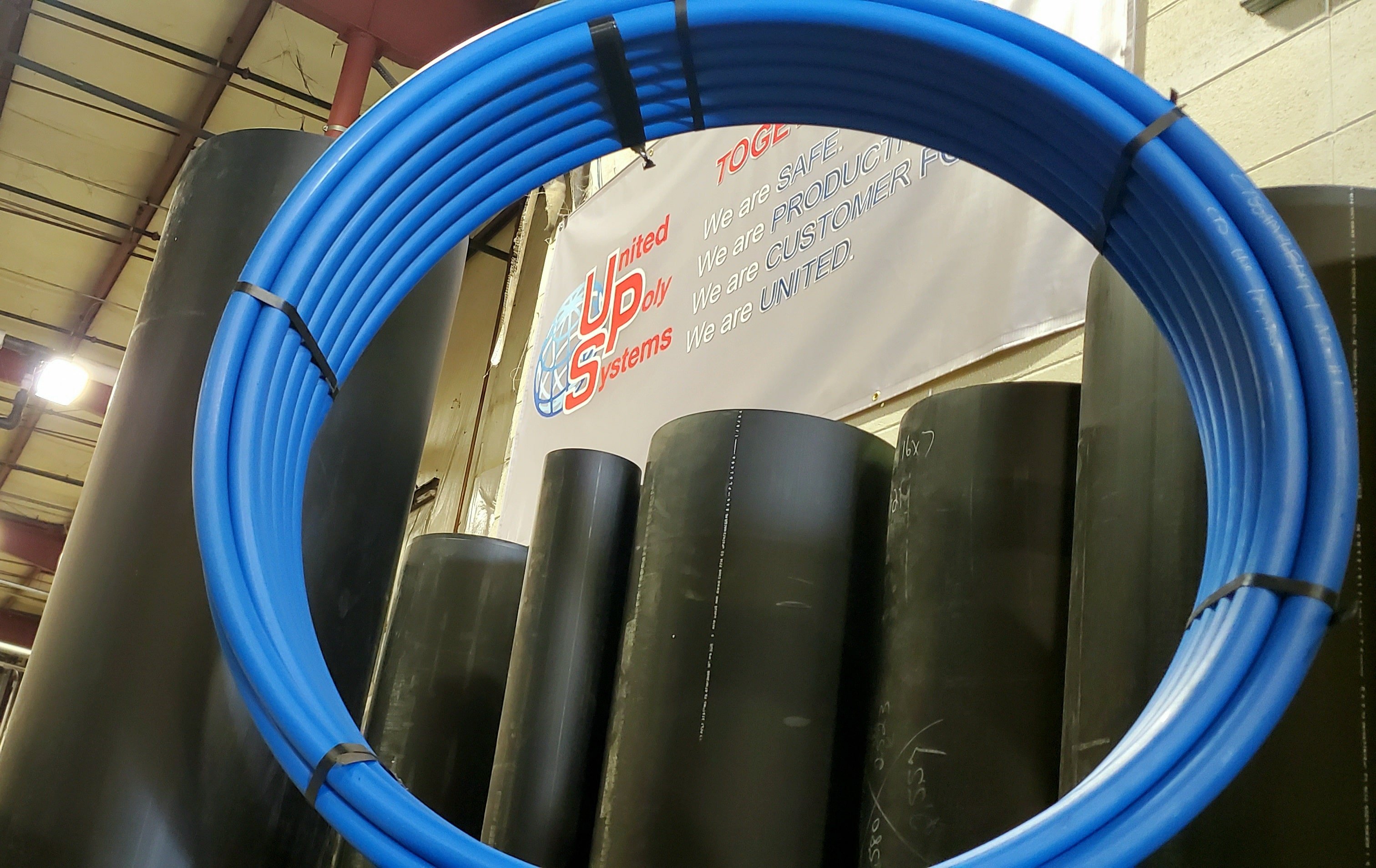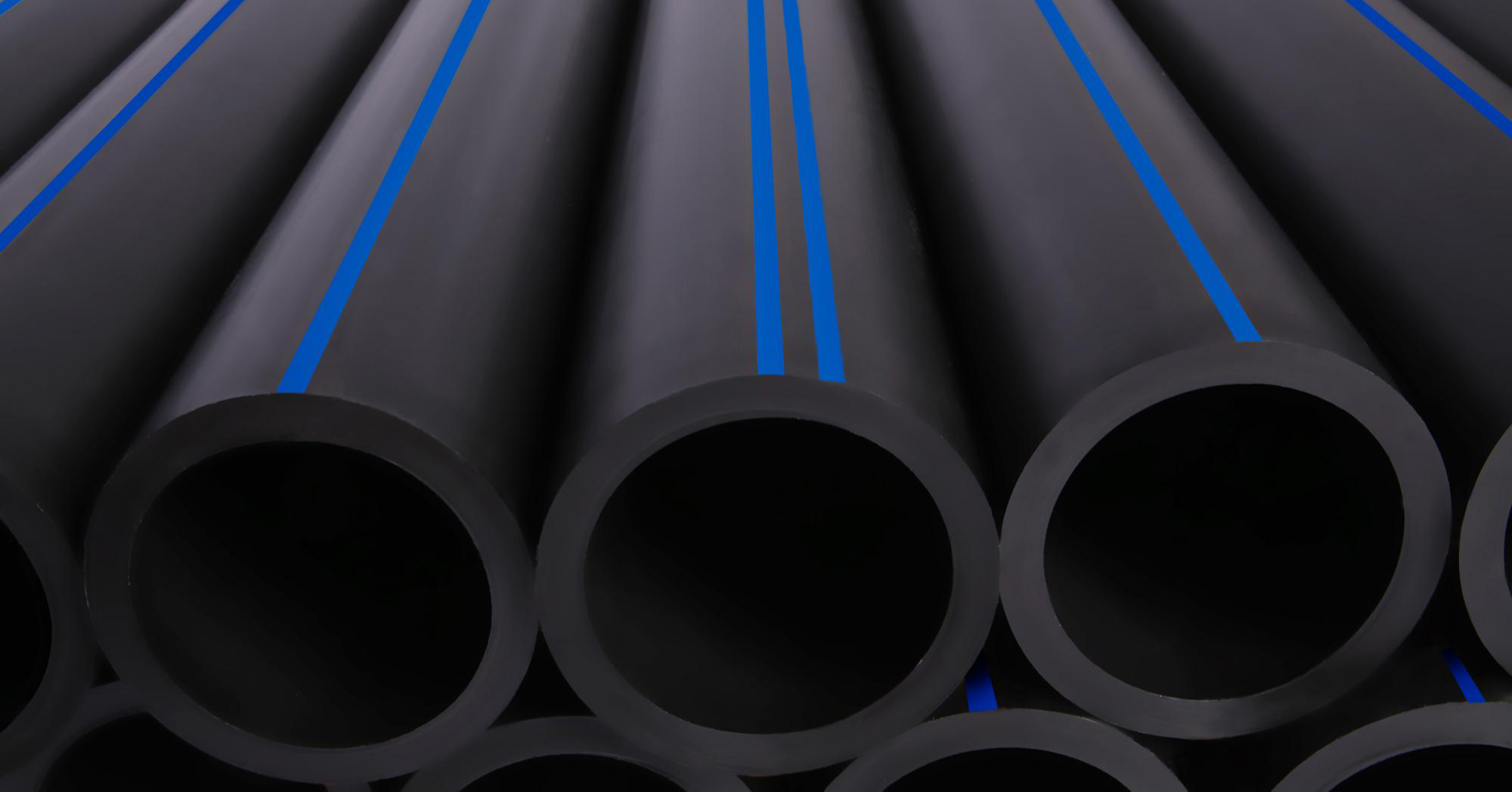A Comprehensive Guide to the Different Uses HDPE Pipeline in Building And Construction and Sector
HDPE pipelines have actually arised as a pivotal component in modern building and industrial applications. Their special homes, such as resistance to rust and lightweight style, make them appropriate for a wide variety of usages. From water systems to farming watering, HDPE pipes provide solutions that enhance efficiency and sustainability. Recognizing their varied applications is necessary for specialists seeking to enhance facilities. What particular advantages do these pipelines offer each market?
Water System and Distribution Systems
Water and circulation systems are vital elements of urban infrastructure, usually depending on high-density polyethylene (HDPE) pipes for their resilience and performance. These systems transportation potable water from therapy centers to customers, ensuring access and security. HDPE pipes are preferred for their resistance to corrosion, chemicals, and severe temperatures, which improves their longevity and reduces upkeep costs. In addition, their lightweight nature permits simpler installment and transportation, making them ideal for different city and rural applications.
The flexibility of HDPE pipes allows them to be set up in limited areas and around challenges, decreasing the requirement for considerable excavation (custom hdpe pipe manufacturing Midland TX). Their smooth interior surface lowers friction losses, enhancing water circulation rates. As cities continue to grow, the need for trusted supply of water systems boosts, placing HDPE pipelines as a sustainable remedy for modern infrastructure jobs. Their proven record makes them a recommended selection amongst engineers and metropolitan planners alike
Wastewater Monitoring and Therapy
Efficient wastewater administration and treatment are essential for preserving public wellness and ecological top quality. HDPE pipes play an essential function in this process because of their longevity, resistance to corrosion, and ability to withstand harsh chemicals. These pipelines are frequently made use of in different applications, consisting of sewer systems, stormwater drain, and wastewater treatment facilities. Their lightweight nature facilitates easier installation and transportation, reducing labor costs and time.
On top of that, HDPE pipelines have a smooth interior surface area that minimizes rubbing loss, advertising effective circulation rates. They are additionally much less vulnerable to leaks and failings compared to conventional products, making certain that contaminants are had properly. Additionally, their flexibility enables adaptability in different dirt conditions, making them appropriate for varied environmental setups. As sectors increasingly prioritize lasting techniques, the use of HDPE pipes in wastewater monitoring systems aligns with objectives for reducing ecological impact and enhancing source recuperation.
Agricultural Irrigation Solutions
In farming setups, efficient irrigation remedies are vital for maximizing crop yields and handling water sources. HDPE (High-Density Polyethylene) pipelines play a crucial duty in modern irrigation systems because of their longevity, flexibility, and resistance to corrosion. Their ability to endure high stress makes them excellent for both surface area and subsurface watering applications, ensuring uniform water distribution across areas.
Farmers can make use of HDPE pipes in drip watering systems, which supply water straight to plant origins, decreasing wastefulness and advertising healthy and balanced development. In addition, these pipelines are lightweight and simple to set up, decreasing labor costs and installation time. Their long life-span and reduced upkeep demands even more improve their appeal in agricultural techniques.
HDPE pipelines are ecologically friendly, as they can be recycled and do not seep dangerous chemicals right into the dirt. This makes them a sustainable choice for farmers intending to take on environmentally friendly agricultural approaches while making best use of performance.
Industrial Applications and Processes
Flexibility is a hallmark of HDPE pipes, making them important in various commercial applications and procedures. These pipes are extensively used in chemical handling markets due to their superb resistance to a wide variety of destructive substances. HDPE's light-weight nature, combined with high tensile toughness, permits very easy setup and lasting performance in requiring settings.
In the oil and gas industry, HDPE pipelines play a necessary role in transporting hydrocarbons and gases, thanks to their durability and adaptability - American Plastics HDPE Pipe for Oilfield. Additionally, they are utilized in mining procedures for the transportation of slurry and other materials, where standard piping systems may stop working
Moreover, HDPE pipes are significantly used in manufacturing centers for water lines and wastewater management. Their capability to stand up to severe temperature this website levels and pressures makes them appropriate for a range of industrial procedures. Generally, HDPE pipelines contribute substantially to performance and safety across gas line pipe diverse industrial applications.
Stormwater Management and Drain Solutions
Stormwater administration and drain systems are critical components in urban infrastructure, developed to handle excess rainfall and decrease flooding dangers. High-density polyethylene (HDPE) pipelines are progressively used in these systems because of their longevity, adaptability, and resistance to deterioration. These pipelines successfully deliver stormwater far from booming locations, lessening surface area overflow and avoiding waterlogging.
HDPE's lightweight nature helps with easier installation, lowering labor prices and building time. Furthermore, its resistance to chemicals and environmental stress factors warranties long life and dependability in various environments. In enhancement to standard drain applications, HDPE pipes are additionally utilized in innovative services such as green framework, which consists of rain yards and permeable pavements.

Often Asked Concerns
Exactly How Does HDPE Pipe Compare to PVC Pipe in Expense?
Generally, HDPE pipe tends to be more pricey than PVC pipe as a result of its improved resilience and adaptability. However, long-term cost factors to consider, such as upkeep and life-span, may favor HDPE in particular applications.

What Is the Life-span of HDPE Piping Under Diverse Problems?
HDPE pipelines normally have a life-span of 50 to 100 years, relying on view website environmental conditions, setup techniques, and use. Factors such as temperature level, soil type, and exposure to chemicals can significantly influence their durability.
Can HDPE Pipes Be Recycled After Usage?
Yes, HDPE pipelines can be reused after usage. The reusing process includes thawing down the material, allowing it to be repurposed into brand-new products, therefore advertising sustainability and lowering environmental impact connected with plastic waste.
Are There Any Specific Setup Obstacles With HDPE Pipes?
Installment challenges with HDPE pipes consist of correct jointing strategies, ensuring ample trench problems, and taking care of thermal development. Additionally, knowledgeable labor is called for to manage specific devices, which can make complex the installation procedure in numerous atmospheres.

What Certifications Should I Try To Find When Investing In HDPE Pipes?
When purchasing HDPE pipes, one need to seek qualifications such as ASTM, AASHTO, and ISO, which verify high quality and compliance with sector criteria, assuring toughness and efficiency in various applications. - hdpe pipe suppliers Midland TX